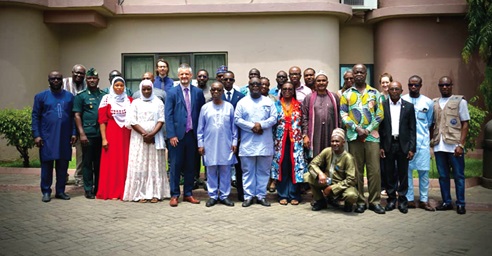A four-day workshop on “Cross-Border Livestock Trade: Policy challenges and opportunities for Ghana,” to foster policy dialogue on critical issues and challenges associated with livestock mobility, peaceful cross-border transhumance and trade between Ghana and its neighbouring countries, has ended in Accra.
The workshop was organised by the Ghana Cattle Ranching and Transhumance Committee in collaboration with Acting For Life and its partners, Changing Lives in Innovative Partnership and Communication Network for Pastoralism.
The committee
The committee was established in 2017 by the Ministers of Food and Agriculture and National Security to provide sustainable strategies for resolving the perennial challenges of pastoralism, improve domestic cattle production and serve as an advisory body on pastoralism.
The committee comprises experts in animal production, animal health and crop production, representatives of some ministries, traditional leaders, farmers and civil organisations.
The participants were drawn from development partners, relevant sectorial ministries related to livestock, the National Security Council Secretariat, the Special Envoy to the Alliance of Sahelian States (AES), traditional authorities, farmer organisations, herder associations, CSOs, parliamentarians, as well as producer organisations.
In a speech read for him, the Minister of Food and Agriculture, Eric Opoku, noted that the threat to the general peace and security of the sub-region emanating from unregulated activities of the actors in the space of cross-border transhumance was worrying.
He said even though livestock mobility to economic progress in the West African sub-region was undeniable, the approach to addressing the potential security threats associated with livestock mobility needed the attention of participants.
Mr Opoku called for the investment in the development of adequate infrastructure to help in the practice of peaceful transhumance in the sub-region.
He said it was a fact that improved access to pasture and water for transhumant pastoralism could improve peaceful co-existence.
Investment in infrastructure
Therefore, the minister called on the leadership of the various Non-Governmental Organisations (NGOs) and Development Partners (DPs) gathered here to help invest in the development of adequate infrastructure to aid the practice of peaceful transhumance in our subregion.
“The lives and security of our friends and families in the sub-region depend on this gathering,” he told the participants, urging them to help address the current insecurity trend.
The minister stressed that information and knowledge sharing were key to addressing the cross-border livestock mobility challenges and urged the participants to contribute effectively to the discussions.
“We must be mindful of the fact that if cross-border livestock mobility is a climate survival strategy, it must be managed properly to promote development,” he advised the participants.
Mr Opoku stated that livestock mobility and trade promoted food security in the coastal countries and regional integration in the West African sub-region, as well as a source of livelihood for an estimated 20 million people in the sub-region.
Welcoming the participants, the Committee Chairman, Dr Kwame Oppong Anane, explained that the workshop sought to foster policy dialogue on critical issues and challenges associated with livestock mobility, peaceful cross-border transhumance and trade between Ghana and its neighbouring countries.

